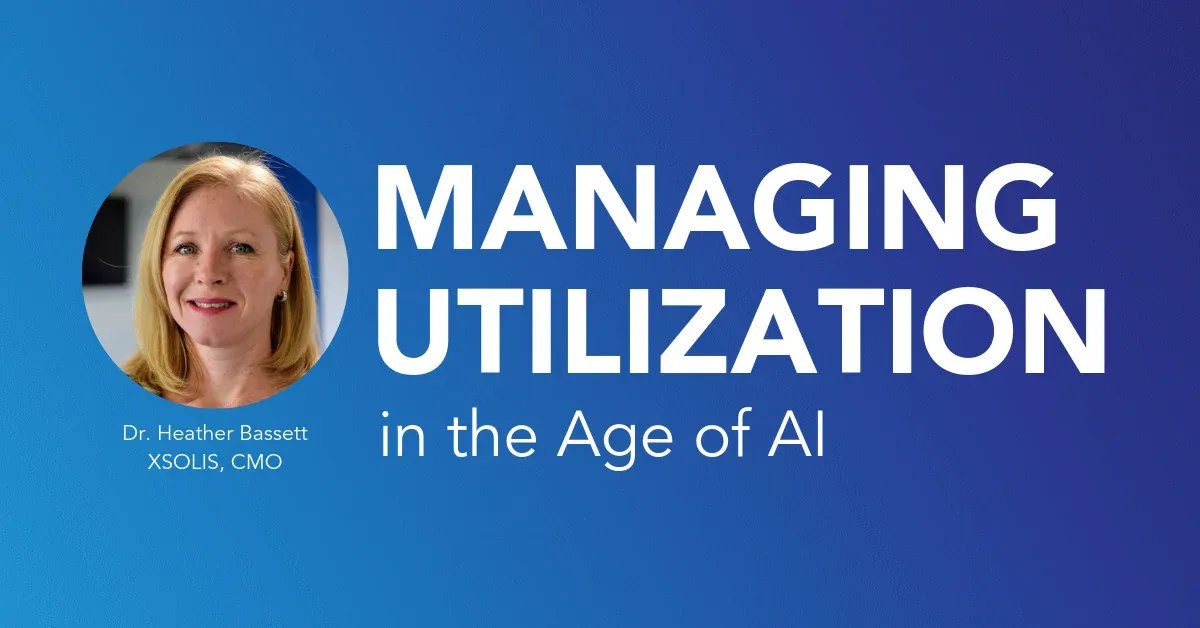In healthcare, artificial intelligence (AI) has leapt from the fringes into mainstream conversation; not a day goes by that I’m not asked about the concept or how healthcare organizations should approach it. Most are unsure about what it is, or how it can be used. The simple answer is that it’s incredibly complex; as a data science discipline, artificial intelligence encompasses a broad range of methods and approaches that are concerned with unlocking the insights hidden within vast amounts of data. The complex answer (and question) is that utilizing this discipline can be daunting – who should you trust to implement AI at your organization, and how do you know if it will work?
Separating facts from fiction isn’t easy; the healthcare marketplace for AI is increasingly crowded, and it’s often hard for healthcare leaders to understand how solutions work or how they’ll truly benefit from them. As I speak to executives across the nation, my advice is simple: have clear objectives in mind when considering how AI can be used to support your staff. Will it positively impact the day to day? Will it help reduce unnecessary work for already overworked clinicians and nurses? Can it directly improve processes and support people?
Earlier this week I spoke on a Becker’s Hospital Review webinar with Sherri Ernst, Revenue Integrity and Utilization Management Officer at Covenant Health, and Tonya Harrison, Director of Clinical Care Management at Atrium Health, about how artificial intelligence is changing both of their organizations’ approach to utilization management.
When Sherri and Tonya first explored their respective collaborations with Xsolis as their AI-supported utilization management partner, they faced the same questions and experienced the same doubts. Yet both saw the potential of AI as an incredibly useful tool in healthcare, especially in automating the type of manual tasks that keep their clinical resources locked in an administrative quagmire instead of managing patient care. They viewed AI that can be brought into operations and workflow as a welcome tool for helping clinicians and caregivers perform to their highest license, free of unnecessary distractions. And they haven’t been let down.
Tonya and her organization are using artificial intelligence to analyze patient data directly from the electronic medical record, stratify each case by the likelihood of an inpatient status, and automate case reviews for cases which AI determines are clearly inpatient. This results in minimal touch cases for a significant number of case reviews for inpatient discharges across designated payers (including Medicare and Medicaid) and has allowed Tonya’s team to more effectively manage their patient population and re-center care towards the patient.
Sherri’s team, likewise, is using Xsolis’ AI to assess and analyze patient data from the electronic medical record in order to more quickly and accurately make status determinations. With a centralized team serving nine hospitals, her team spent hours a week searching through the EMR to justify the clinical merit of each case and communicating their findings with the payer; the time that XSOLIS has saved them now means that Sherri’s team can review all their cases quickly and efficiently. Additionally, Sherri has used Xsolis’ AI-driven platform to connect her directly to a national payer; now, payer nurses log into the platform, Cortex, daily to review cases escalated to them by Covenant Health. These escalations and reviews are immediate and effortless, as are the authorizations. The working relationship has improved between the payer and the provider, as have the workdays of the nurses on both sides.
I’ll borrow an analogy Sherri shared with me: think about your day-to-day tasks at your job. Make a list of everything you do, then put an X next to everything that you’d consider an administrative burden. If you’re like me, there might be quite a few X marks on the page. Those X’s are what artificial intelligence can and should be used to minimize, refocusing your time on your most important tasks.
As healthcare adapts to changes in technology, the end goal remains clear: the best possible care, provided in the right setting, at the right cost, at the right time. AI has the potential to reduce barriers towards this goal; smarter utilization management is just the beginning.
